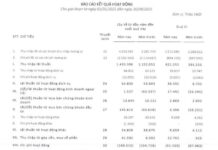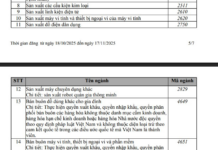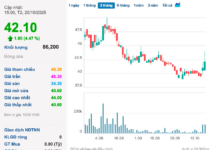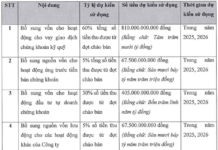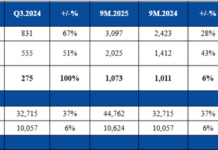Supporting Industries: A Key Driver for Vietnam’s Industrial Autonomy
Over the years, alongside Vietnam’s extensive integration into the global economy, the supporting industry sector has made certain strides. However, it remains underdeveloped, unable to meet domestic production needs and the stringent demands of international integration. Hence, fostering the development of industry, particularly self-sufficiency in core materials, is essential for domestic businesses and a goal set by the Ministry of Industry and Trade (MoIT).
Numerous Incentive Mechanisms and Policies Enacted
Throughout the economy’s evolution, industry has played a critical role in industrialization, modernization, and economic growth. It is widely recognized as a key to national prosperity.
In Vietnam, industrial development is a cornerstone interwoven with the nation’s industrialization and modernization endeavors. The aim is to establish and foster an independent, self-reliant, and internationally integrated economy. The 13th National Party Congress emphasized that a robust, self-sufficient domestic industry is crucial for ensuring economic independence, as it constitutes a vital component of the national economy. Industrial development not only generates substantial value-added but also has a transformative impact on overall economic growth.
Industrial development is intertwined with the country’s industrialization and modernization efforts. It is the path toward an independent, self-sufficient, and internationally integrated economy. Recognizing this, the Party has consistently emphasized policies and strategies to stimulate industrial growth.
Amongst various industries, supporting industries play a pivotal role as a direct catalyst for value creation. They enhance the competitiveness of primary industrial products and accelerate the industrialization process.
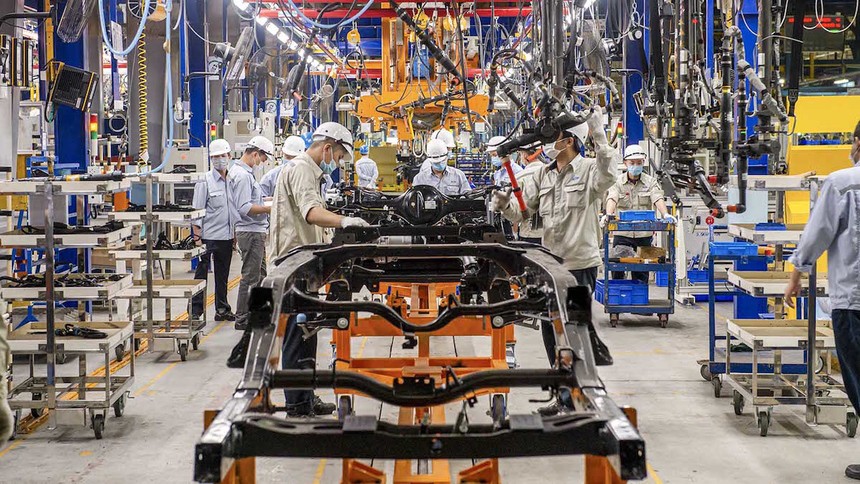
Developing supporting industries towards self-sufficiency. Illustrative photo
Reflecting on the trajectory of industrial development from the Party’s 3rd National Congress (1960) to the 13th National Congress (2021), it is evident that the Party and the State have always prioritized timely policies and strategies to promote industrial growth, including the supporting industry.
In its collective efforts, the MoIT has also played a proactive role, advising the Government and Prime Minister on issuing Decree 111/2015/ND-CP dated November 3, 2015, regarding supporting industry development. Subsequently, to ensure effective implementation of the Decree, the MoIT issued Circular 55/2015/TT-BCT, which outlines procedures for verifying incentives and conducting post-verification inspections of investment projects producing supporting industry products that fall under the Priority List of Supporting Industry Products for Development.
In reality, the supporting industry has been recognized by the Party, the State, and the Government as a crucial industry, the driving force behind domestic industrial growth. Consequently, numerous mechanisms, policies, and legal frameworks have been established to facilitate its development. Among these, Decree 111/2015/ND-CP plays a significant role in propelling the rapid and sustainable expansion of the supporting industry. Additionally, the Government issued Resolution 115/NQ-CP dated August 6, 2020, setting a target for 2025. It aims for Vietnamese enterprises to attain the capability to manufacture highly competitive supporting industry products, meeting 45% of essential domestic manufacturing and consumption demands, and accounting for approximately 11% of the total industrial sector’s production value. By 2030, supporting industry products should meet 70% of domestic demand and comprise around 14% of industrial production value.
According to experts, during the 2021-2030 period, with a vision extending to 2045, Vietnam’s industrialization and modernization strategy must adapt to the rapidly changing domestic and international landscape. This evolving backdrop presents Vietnam with a strategic choice: either to pioneer the development of specific new industries, leveraging national advantages, or to settle for the status of a global manufacturing hub. To achieve the former, it is imperative to invigorate the development of supporting industries in Vietnam.
Local Governments Step Up Efforts
In conjunction with the initiatives undertaken by the Government and MoIT, local authorities are also actively supporting the growth of supporting industry enterprises. A notable example is Ho Chi Minh City, where developing supporting industries has been a consistent priority for the People’s Committee. As early as 2002, the city established the Saigon Hi-Tech Park pursuant to Prime Ministerial Decision No. 145/2002/QD-TTg dated October 24, 2002. It is one of the first three hi-tech parks in the country, envisioned as a special economic and technical zone centered around high technologies. Its primary objective is to attract foreign investment.
Driven by this vision, a multitude of leading global technology corporations have established a presence there, including Intel, Jabil, Rockwell Automation (USA), Nidec, Nipro, NTT (Japan), Samsung (South Korea), Sonion (Denmark), Datalogic (Italy), Sanofi (France), TTI (Germany), and more.
Simultaneously, the Ho Chi Minh City Department of Industry and Trade has established the Supporting Industry Development Center. Its mandate is to oversee industrial and supporting industry governance, assist supporting industry enterprises in production and product marketing, provide advisory services on industrial development in accordance with legal provisions, propose policy mechanisms to foster the growth of supporting industries in the city, and serve as a coordinating body between various departments, agencies, district and county People’s Committees, and domestic and international organizations and individuals to stimulate comprehensive research and development in supporting industries within Ho Chi Minh City.
In a recent move to further promote the development of supporting industries, the Ho Chi Minh City People’s Committee issued a plan implementing the city’s Supporting Industry Development Program for 2024-2025.
Under this plan, Ho Chi Minh City will provide investment and expansion support, as well as facilitate market linkages for supporting industry enterprises. Emphasis will be placed on formulating and advocating for policies that aid businesses operating in the supporting industry sector. Additionally, initiatives will be undertaken to support businesses investing in supporting industry production through interest rate subsidy programs and other incentive policies offered by the city. Concurrently, the city will organize a program to recognize outstanding industrial and supporting industry products. Selected products will receive marketing and development assistance.
Furthermore, the city will support training initiatives to enhance the quality of the workforce in line with the requirements of supporting industry product manufacturers, such as developing and implementing a plan to train highly skilled personnel for supporting industry enterprises. It will also maintain and improve the city’s core industrial and supporting industry product database.
In the case of Binh Duong province, the Department of Industry and Trade has been instrumental in supporting the development of its supporting industry. It has advised the provincial People’s Committee to issue Decision No. 4108/QD-UBND dated December 31, 2019, approving the “Master Plan for the Development of Supporting Industry Clusters in Binh Duong Province to 2020, and Orientation to 2030.”
Consequently, Binh Duong plans to invest in developing four supporting industry clusters, each covering an area of 75 hectares, including one for the mechanical engineering sector. Moreover, the province has designated an additional industrial zone for the mechanical engineering industry (Bac Tan Uyen 1 Industrial Park in Tan Uyen City). The move is intended to bolster the growth of supporting industries in the province.
As one of the nation’s leading supporting industry hubs, Dong Nai province aims to increase the contribution of supporting industries to approximately 21-23% of the province’s total industrial sector value by 2025. The province will also endeavor to establish linkages between supporting industries and finished product manufacturers, foster cooperation among them, and develop additional supporting industry zones and clusters, complemented by favorable incentive policies.
With the combined efforts of businesses, the coordinated involvement of all levels from the Government to local authorities, and the expertise of industry professionals, there is optimism that the supporting industry will continue to flourish. These endeavors will, in turn, contribute to fulfilling Vietnam’s aspiration for an autonomous industrial sector.









